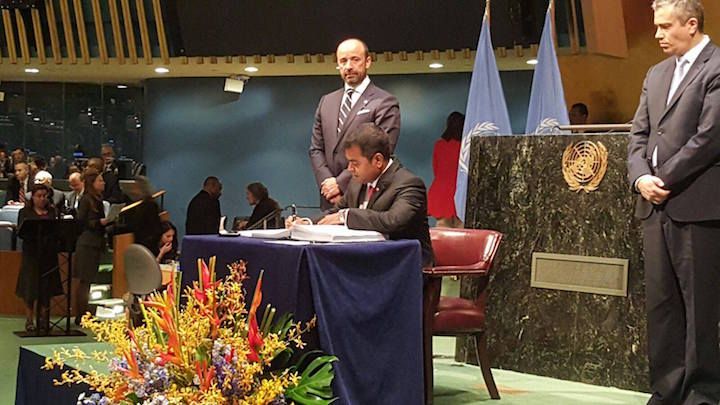Maldives signs historic climate change agreement
The Maldives signed the historic Paris climate change agreement on Friday, urging big polluters to commit to reducing greenhouse gas emissions.

25 Apr 2016, 9:00 AM
The Maldives signed the historic Paris climate change agreement on Friday, urging big polluters to commit to reducing greenhouse gas emissions.
Environment Minister Thoriq Ibrahim signed the landmark deal on behalf of the Maldives at a ceremony at the UN headquarters in New York.
Speaking at the ceremony after a record 171 nations signed the treaty, UN Secretary-General Ban Ki-moon noted that the planet is experiencing record high temperatures and called the Paris Agreement “a new covenant for the future.”
Some 55 countries that together account for 55 percent of global emissions must formally join the agreement for it to come into force. Under the agreement, countries will set their own targets for reducing carbon dioxide emissions.
Become a member
Get full access to our archive and personalise your experience.
Already a member?
Discussion
No comments yet. Be the first to share your thoughts!
No comments yet. Be the first to join the conversation!
Join the Conversation
Sign in to share your thoughts under an alias and take part in the discussion. Independent journalism thrives on open, respectful debate — your voice matters.




